
Deputy Director of the Department of Industry ( Ministry of Industry and Trade ) Pham Van Quan shared at the seminar - Photo: Organizing Committee
Supporting industry (SI) is considered the "backbone" of the national industry, the foundation to reduce dependence on imports, increase added value in products and improve competitiveness. However, after nearly a decade since Decree 111/2015/ND-CP was issued, this sector has not developed commensurate with its potential. The Government's issuance of Decree 205/2025/ND-CP amending and supplementing a number of provisions of Decree 111/2015/ND-CP on the development of SI is considered a breakthrough, creating a strong push to attract investment and promote Vietnamese enterprises to participate more deeply in the global supply chain.
The impact of Decree 205 on the picture of attracting investment in supporting industries in our country was discussed at the seminar "Attracting investment in supporting industries: Leverage from policies" organized by Industry and Trade Magazine on the morning of October 13.
Opportunities from new policies
Deputy Director of the Department of Industry (Ministry of Industry and Trade) Pham Van Quan said that in the first 9 months of 2025, Vietnam achieved a record import-export of more than 681 billion USD, but up to 94% of the import value was raw materials, components, products that can be produced domestically if the supporting industry develops strongly. Currently, FDI capital invested in supporting industry is only about 20 billion USD, while domestic enterprises reach 5-6 billion USD, this number is still modest compared to demand.
The reasons, according to Mr. Quan, come from two factors: Lack of capital and lack of technology. Investing in supporting industries requires large costs, while domestic enterprises are small in scale, and have difficulty accessing credit and advanced technology. FDI enterprises have not really opened their doors for Vietnamese enterprises to participate in the supply chain due to strict technical requirements and international standards. Therefore, Decree 205 was designed to force FDI enterprises participating in the support program to have a contractual link with at least one Vietnamese enterprise, in order to create a "path" for domestic enterprises to enter the chain.
Notably, Decree 205 also expands the scope of support, from research, testing, technology transfer to market support and tax incentives. Enterprises participating in supporting industries are offered preferential loan interest rates 3% lower than commercial loans, and are also supported with R&D costs and trial production at industrial development centers invested by the Ministry of Industry and Trade.
"The goal is to help businesses overcome barriers in capital, technology and output," Mr. Quan affirmed.

Deputy Director of Bac Ninh Department of Industry and Trade Hoang Anh Tuan shares the province's experience in accompanying businesses - Photo: BTC
As one of the "bright spots" of the supporting industry, Bac Ninh province has implemented many mechanisms to accompany businesses. Deputy Director of the Department of Industry and Trade of Bac Ninh, Hoang Anh Tuan, said that the province has signed a tripartite cooperation agreement between the Ministry of Industry and Trade, the Provincial People's Committee and Samsung Electronics Vietnam to advise on production improvement for supporting industry enterprises in the period 2020-2025. The program focuses on three contents: Improving management capacity, improving production processes and applying digital transformation, helping businesses access modern production standards.
Bac Ninh also pioneered the implementation of the "24-hour Green Channel" and "60% Green Channel" mechanisms to quickly process administrative procedures for industrial investment projects, in parallel with the development of traffic infrastructure, industrial clusters and specialized zones. "We consider the prosperity of enterprises as the prosperity of the locality," Mr. Tuan emphasized.
To effectively utilize Decree 205, Bac Ninh is planning to form specialized supporting industrial zones, creating clusters of links between production and manufacturing enterprises and output enterprises, reducing transportation costs and optimizing the value chain. The province also proposed that the Ministry of Industry and Trade soon issue a national plan on supporting industrial development, assigning specific tasks to each locality, helping to clearly define responsibilities, key products and target markets.
From a business perspective, Mr. Ho Ngoc Toan, Deputy General Director of Automech Company, shared that Vietnamese enterprises have three major advantages: the ability to flexibly convert production, a team of young engineers who are quick to adapt to technology, and a rapidly growing domestic market with many investment corporations. However, the challenges are still not small due to small scale, limited capital, old technology, and lack of international standards.
"Investing in supporting industries requires long-term vision and policy support. A 2-hectare factory needs at least VND200 billion, but domestic enterprises find it difficult to borrow preferential capital. In addition, achieving standards such as IATF 16949 in the automotive industry takes 2 years or more, requiring technical support and specialized training," Mr. Toan gave an example.
Institutions: Vietnam's new competitive advantage
According to Mr. Pham Van Quan, Vietnam is shifting from the advantage of "cheap labor" to the advantage of flexible institutions and policies. Over the past year, many strategic resolutions of the Politburo have removed bottlenecks in management and expanded the space for private economic development. The Ministry of Industry and Trade is currently drafting the Law on Key Industries and proposing an Industrial Development Fund of about 1% of GDP to support businesses in borrowing capital without having to mortgage assets.
"The State is willing to share risks with businesses, because developing platform industries will bring benefits much greater than the initial investment costs. When businesses become rich, the country will be strong," Mr. Quan emphasized.
However, he also admitted that the policy still has a certain "lag" when many businesses have not proactively approached the incentives. The Ministry of Industry and Trade has established the Industrial Development Support Center in Hanoi to advise and guide businesses to participate in the CNHT program, but needs more active coordination from localities and associations to spread information.
Anh Tho
Source: https://baochinhphu.vn/don-bay-chinh-sach-moi-thuc-day-cong-nghiep-ho-tro-but-pha-102251013152851532.htm



![[Photo] Solemn opening of the 1st Government Party Congress](https://vphoto.vietnam.vn/thumb/1200x675/vietnam/resource/IMAGE/2025/10/13/1760337945186_ndo_br_img-0787-jpg.webp)






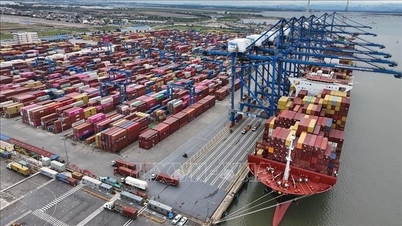










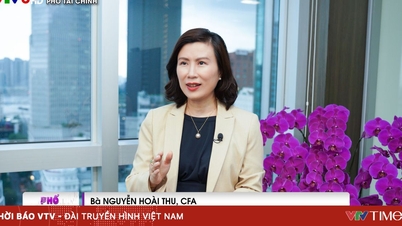
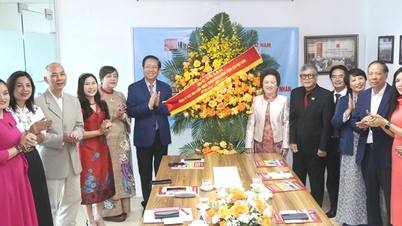
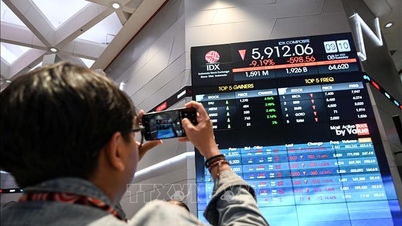







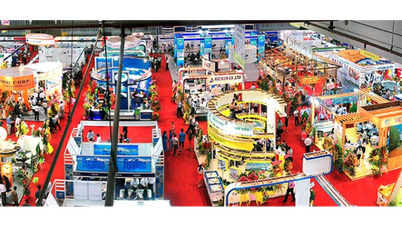


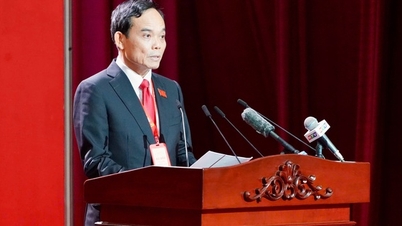










































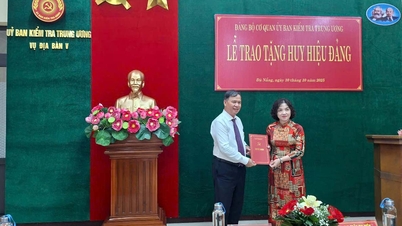








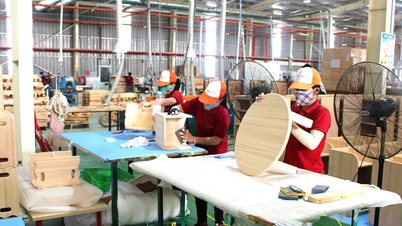





















Comment (0)